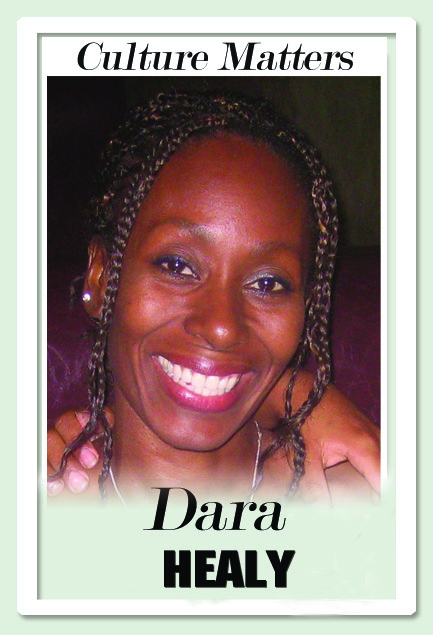On mourning ground

Culture Matters
Dear Comrade if it must be you speak no more with me nor smile no more with me...
Now from the mourning vanguard moving on Dear Comrade
I salute you and I say Death will not find us thinking that we die.
– Martin Carter, Poems of Resistance, 1954
IN THE space of three months, I have lost three elders. Two of them simply disappeared from my world. I think about the last conversation I had with them. We laughed and talked about happenings in TT, politics and the mysteries of life.
Uncle B loved jazz; the B was for bebop. Like Travolta, you could tell by the way he used his walk, he was a woman's man; no time for talk. He lived in Manhattan and was old enough to regale me endlessly with his memories about Coltrane, Miles and other hot jazz artists of the time. One time, he took us to a favourite jazz haunt, revelling that people in the club recognised him and treated us like royalty.
My Aunt Ekere lived in Tobago. She was what you would imagine an elder to be; managing property, supporting young people in their business ventures and was often a source of comfort through her spirituality. I did not realise she was so ill. I had heard she was not feeling well, but then older people tend to have aches and pains. Then I heard she was hospitalised. Then a stroke. Then...gone.
Her normally talkative, articulate nephew was speechless on the phone. I offered condolences, puny in the face of our loss. “Yeah, yeah, yeah. Ok.” That was what he managed to say. Then he hung up. How should we grieve now? What rituals will replace the customs of mourning?
The third elder transitioned into the ancestral realm this week. Wayne Jagdeo, who introduced pan into parang, who was the quiet force behind Los Alumnos de San Juan, who moulded and inspired many.
Last year I teased him because he was taking long to organise some instruments for us. He would tell me that it was not his fault, that he was waiting on someone else to organise. I would accuse him of forgetting and he would smile and say something to make me forget why I was quarrelling with him.
He would sit quietly as we discussed ways to emerge from the creative void being threatened by covid19. Sometimes he made suggestions, and whenever he spoke, well, he made sense.
I was still processing the disappearance of Uncle B when the others left us. Left me. Ancient rituals of grief require family and friends. The hot tea, rum, Crix and tears. The conversations and the hugs. The people you can barely stand, but decide to talk to because that is what the person who passed would have wanted. The Bongo. Ancient rituals provide the solace counselling programmes cannot. The Anishinabe, indigenous peoples from Canada, remind us that if “the grieving cycle is not complete, the grieving person may walk through life emotionally wounded or mentally challenged.”
Ancient belief systems from the Egyptians, to the Maya, Hindus and Ifa/Orisa recognise the cycle of life that connects the new-born to the living and the departed. The Earth is the link – from the pipe filled with sacred tobacco, to the palm oil or the sage. Ashes to ashes, dust to dust. Many would not know that the rest of the Christian burial prayer continues, “...in sure and certain hope of the resurrection to eternal life...”
In ancient rituals, believers lie flat on the bare ground to commune with ancestors and connect with their spiritual selves. How do we continue to connect with this life cycle, broken somewhat by modern views on spirituality and the burden of a pandemic?
The Anishinabe also warn that the “...dead have power and it is dangerous to neglect the spiritual needs of the dead.” My uncle disappeared and no ritual acknowledged that he walked this Earth, that he lit up the room. Nothing to say he loved us. That he loved me. The Ifa/Orisa rituals for my aunt will happen, in private. I will not be part of her transition. What final rites for Wayne, to honour his towering talents and gentle soul?
In the space of three months I have lost three people who connected me to the universe. I will mourn them and dedicate my own earthly rituals to their spirits. Their deaths will not find me thinking they die. I know better.
Dara E Healy is a performance artist and founder of the Indigenous Creative Arts Network – ICAN


Comments
"On mourning ground"